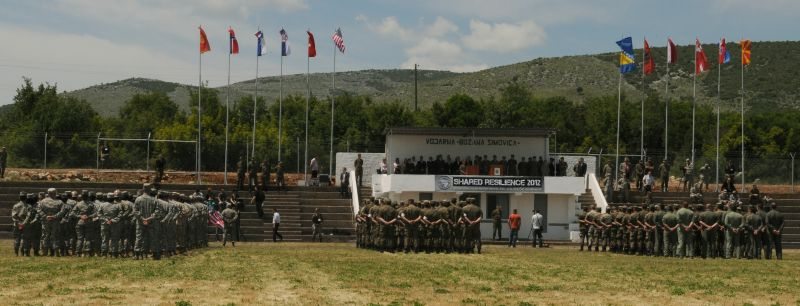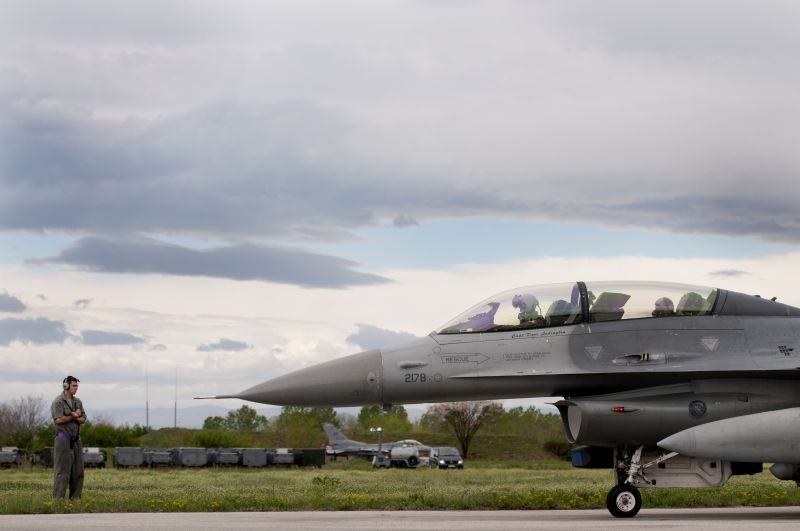A two-week joint medical exercise began with a kickoff ceremony here May 28.
Exercise Shared Resilience 2012 is an annual U.S. Joint Chiefs of Staff-sponsored exercise with a goal to strengthen interoperability; facilitate training in disaster management and crisis response; and validate the readiness of deployable multinational medical and humanitarian assistance teams.
Participating nations include Albania, Bosnia-Herzegovina, Bulgaria, Croatia, Montenegro, Norway, Slovenia, Serbia and the United States.
“Training is very important,” said U.S. Air Force Col. Robert Marks, the Shared Resilience 2012 co-director. “Shared Resilience 2012 allows the United States and our partner nations to train together in order to be a more effective medical community later. We’re exchanging ideas and techniques at the multinational level to speed coordination and ultimately save lives.”
Exercise participants will train using disaster scenarios possible in Bosnia-Herzegovina, which include wildfires, floods or earthquakes. The mountainous region can make medical evacuation difficult if not impossible, officials said.
Evaluators will observe the medical readiness and capabilities of the host and participating nations. Exchanging information and techniques allows regional and international medical teams to garner a bigger picture of how to aid the wounded in this part of the world.
Hosting the exercise represents a great honor for Bosnia-Herzegovina, said Marina Pendes, the Bosnian-Herzegovinian deputy minister of defense. It symbolizes the trust, security and stability of the entire region since many neighboring countries are involved.
Partnership events like these offer an excellent opportunity to test and improve medical capabilities, Pendes continued. Having those increased capabilities furthers one of the roles of the Bosnian-Herzegovinian armed forces, which is to support civilian authorities during natural and other catastrophes.
U.S. Air Forces in Europe is the lead U.S. organizer of the exercise, and SR12 is one of several military engagement programs conducted by U.S. European Command.
“Our focus in the first week here is to train with a single mission to become interoperable, supporting each other in the event of a contingency such as a natural disaster,” Marks said. “During the second week, we will test that training with an exercise and demonstration to representatives from multiple nations.”











